Allan McNish: How do Mercedes handle Rosberg and Hamilton now?
- Published
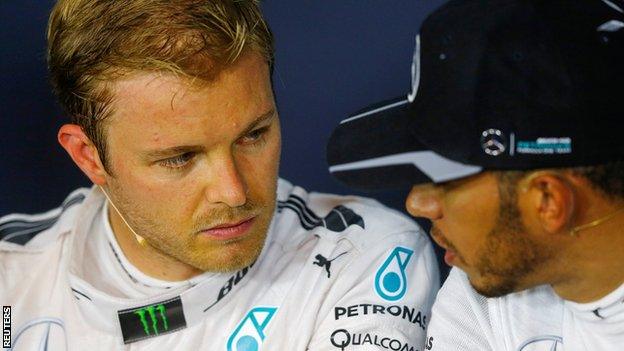
Most observers blamed Nico Rosberg (left) for the crash with Lewis Hamilton on Saturday
Mercedes are in an awkward situation following the crash between Lewis Hamilton and Nico Rosberg on the final lap of the Austrian Grand Prix.
They have got themselves into it by simply being better than the rest, and allowing the drivers to race without compromise.
For two and a half years now, they have had the fastest car, with the widest working window so it's good on every circuit, and two of the fastest drivers on the grid.
They have been dominant, which means Hamilton and Rosberg are fighting it out not only for world championships but individual race victories too.
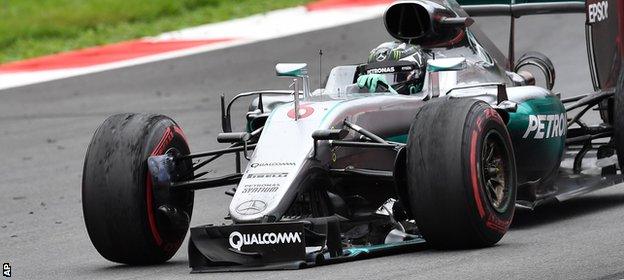
Rosberg had been leading when he collided with Hamilton and eventually finished fourth with his front wing in pieces
The more time they spend in each other's proximity, the bigger the chance they will have an incident. The law of averages dictates that these things are going to happen from time to time.
Teams hire drivers to win at all costs. If they were not of that mentality, if they did not have that ruthlessness, they would not be racing drivers at the highest level.
Inevitably, problems arise if a team hires a driver like that, and then tries to control and cage them.
I can speak from personal experience here. In my career, I had incidents with my team-mates, ones where I was naughty with them, and where they were naughty with me.

Back in 2012, when it was announced Hamilton would be joining him at Mercedes, Rosberg was happy to welcome his new team-mate aboard
Tempers flare. Things happen that should not happen, you say things on the radio that, on cold hard reflection, you know you should not have said. But it is the nature of the beast.
So what do they do about it?
Whose fault was it?
Rosberg had been faster all weekend until his suspension failure in final practice, and had driven a very good race to be where he was from sixth on the grid, but he was hanging on.
The incident at Turn Two happened only because of a mistake by Rosberg at Turn One. He hit the inside kerb and that affected his corner exit and momentum on the long run to Turn Two.
Without that, Hamilton would not have been close enough to attack him, and then because Sergio Perez had gone off at Turn Three, the yellow flags meant Hamilton could not have tried to pass him there either. So Rosberg would have won the race.
If I was Rosberg, I would be kicking myself about that Turn One mistake.
As for the collision itself, Rosberg was at fault. I called it live in the BBC commentary. I have seen it many times since and I have seen no reason to change that view.
According to the regulations, and the accepted code of conduct among the drivers, Rosberg has the right to defend, but not to leave no room at all when the other car is fully alongside.
He made no attempt to make the apex at all. That was very clear. His way of defending was to drive straight to the outside of the track, to keep Hamilton to the outside - like a block, if you like - and try to get a good acceleration out.
Interestingly, on the previous two laps, Hamilton had made a later apex than Rosberg and was getting a better exit.
Rosberg was effectively trying to counteract that, but he went one or two metres too far.
As for being reprimanded for coming back with the nose underneath the car, yes it was probably dangerous and wrong. But every single driver would have done it and any driver who did not would have been given a talking to by his team boss for losing points.
Another factor to consider
Hamilton was converted from a one-stop to a two-stop in the middle of the race. Mercedes did it with the best intentions - because their calculations told them he was likely to lose the race otherwise to Rosberg on a two-stop.
Hamilton had only lost the lead in the first place because of a problem at his first pit stop. The intention was to give him a chance to get it back by stopping him first when they made their second stops. But it went wrong because of another pit-stop problem and an error by Hamilton on his out lap.
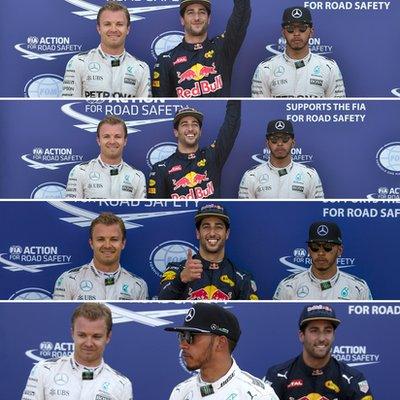
Things have not been all sweetness and light between the two Mercedes drivers - as this picture taken after Monaco qualifying shows
Right now, Mercedes have one problem. But they would have had another if Hamilton had ended up going from leading the first 21 laps to losing the race because he was on the wrong strategy and had two slow pit stops. He would have been furious.
What next?
There will be times when Ferrari and Red Bull get close to Mercedes over the rest of this season. But by and large it is going to be Hamilton and Rosberg fighting it out.
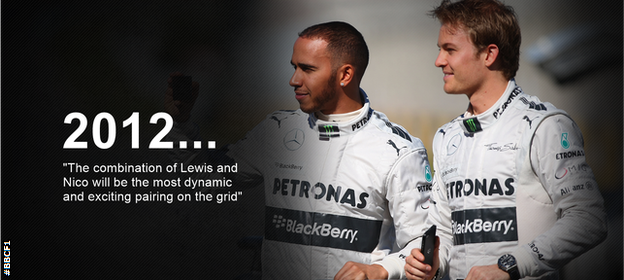
Then team principle, Ross Brawn, had this to say on the announcement of the 2013 Mercedes driver line-up
For the team, the constructors' championship is very important. It is what the prize money is paid on. For the driver, the drivers' championship is the only thing.
Mercedes sort of got away with it at the weekend. It could easily have ended up with both cars losing the win.
There could have been more damage to Hamilton's car.
Or, when Rosberg was driving along the edge of the track immediately after the incident and Hamilton was trying to rejoin, they could both have kept their foot in it - Hamilton's car could easily have bounced and gone into the barrier.
Either way, then a Red Bull would have won with a Ferrari second.
That is the sort of thing Mercedes cannot accept.
The complication of the drivers' situations
In Hamilton, they have one driver under contract; in Rosberg, they have another who - at least according to the team's public statements - does not yet have a deal beyond this season.
Every driver's contract stipulates penalties if they do not behave according to the wishes of the team.
After their collision in Belgium in 2014, for example, Rosberg was given some form of contractual punishment for causing a collision with Hamilton.
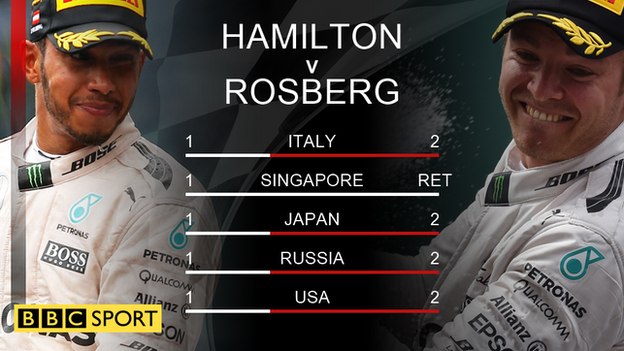
After their accident in Belgium in 2014, Hamilton went in a winning spree as Rosberg fell back
That incident had an effect on Rosberg - he was not the same again for the rest of the season. Probably because it was the first time he had been blamed for anything and he was rocked by it all.
Rosberg is getting a lot of the blame on this one as well - the majority have sided with Hamilton. It is very different from the incident in Barcelona in May, when his behaviour in closing the door was considered acceptable.
So it will be very interesting to see how Rosberg responds to this now. Can he bounce back? Or will he be rattled like he was in 2014?
Will they - and should they - impose team orders?
These sorts of things cannot be allowed to get out of hand. It can divide the garage and create a poisonous atmosphere within the team.
I hope they do not impose team orders. I've raced with team orders and I hated it - if you were not on the positive side of the team order, you knew you were just turning up to support.
The question is, what would team orders even mean in this context?
Mercedes Team Principle Toto Wolff on the possibility of team orders |
|---|
"One option is to freeze the order at a certain point. It makes we want to puke myself but if racing is not possible without contact that is a consequence." |
With the drivers one and two in the championship and only 11 points apart, Mercedes can't just pick one and say he will win the title.
I could only foresee a situation whereby at a given point in the race, if they were leading, that was it, keep status quo. This would mean qualifying and the run to the first corner, so gaining track position, would be even more critical than it is already.
In addition, they could possibly keep them on the same strategy, because it was their alternate strategies that were partly responsible for them ending up in the situation they were in Austria.
Team orders could happen, but that would be very bad for the fans and the sport. The battle between the two Mercedes drivers is what keeps the season alive.
What would I do?
I have had some insight into both sides of this situation - I have been a racing driver and I now work closely with Audi on the corporate and management side.
If I was running Mercedes, I would have said to everybody on Sunday night "Go home".
It was too early and raw to talk rationally. I would ask the drivers, engineers and team manager to come to the factory on Wednesday.
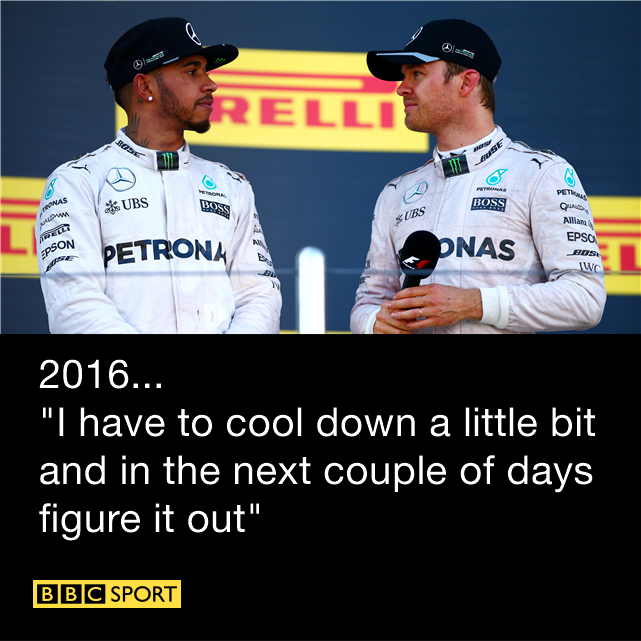
Things however have gone a little sour, with team principle Toto Wolff seething after the incident in Austria
I would discuss it with each driver and their support team separately to get their "cold-light-of-day view", and then with them all together.
And finally I would say: "We demand and expect from now on that the cars will race hard and race fair, and never crash into each other again."
It would be a final warning. They have to draw a line in the sand.
The big question is what happens if they subsequently failed to follow the instructions and there was another incident. That is the real toughie, because at some point something has to change.
In the end, that would be the threat hanging over the drivers.
Allan McNish was speaking to BBC Sport's Andrew Benson.
- Published3 July 2016
- Published3 July 2016
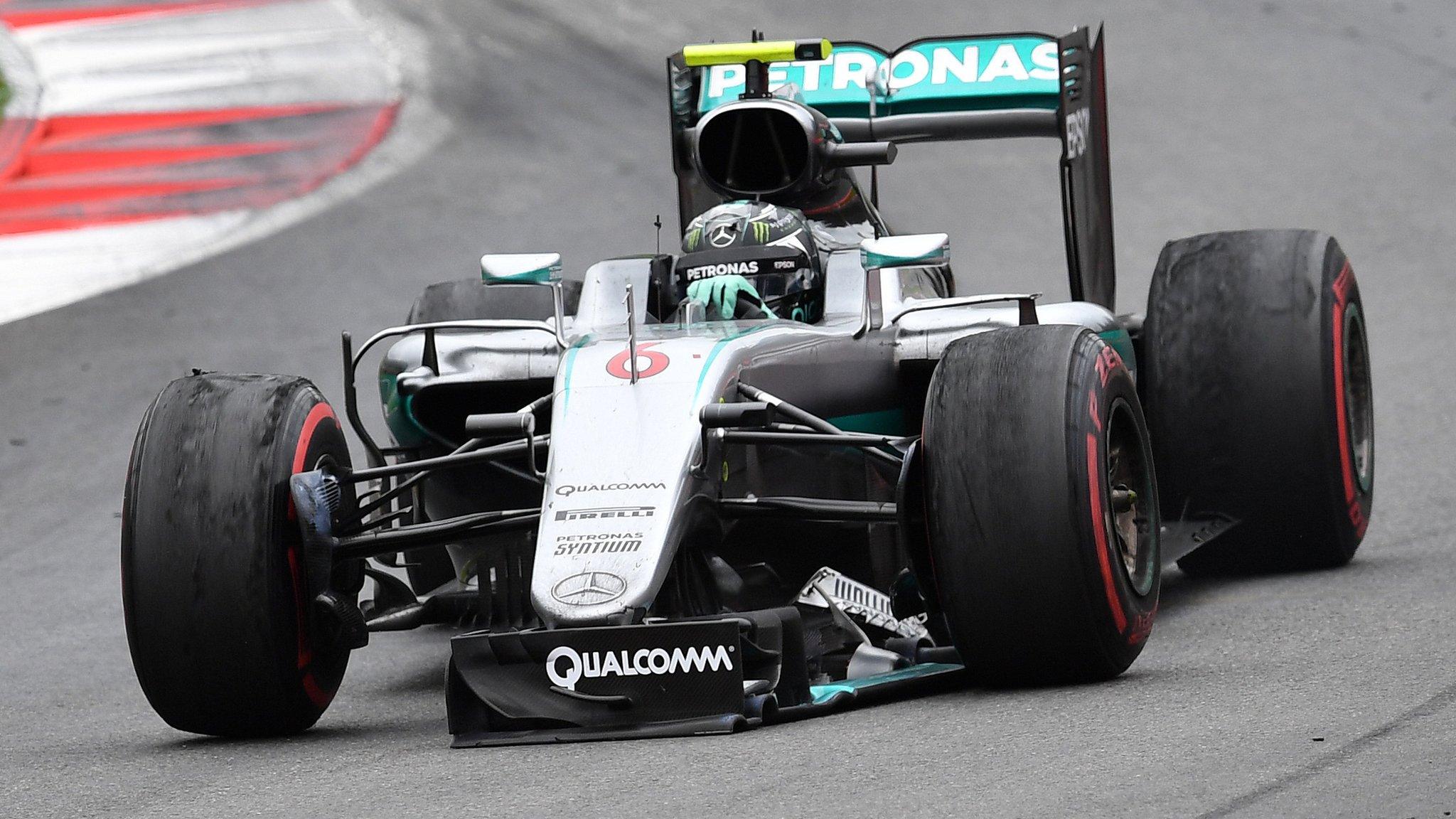
- Published3 July 2016
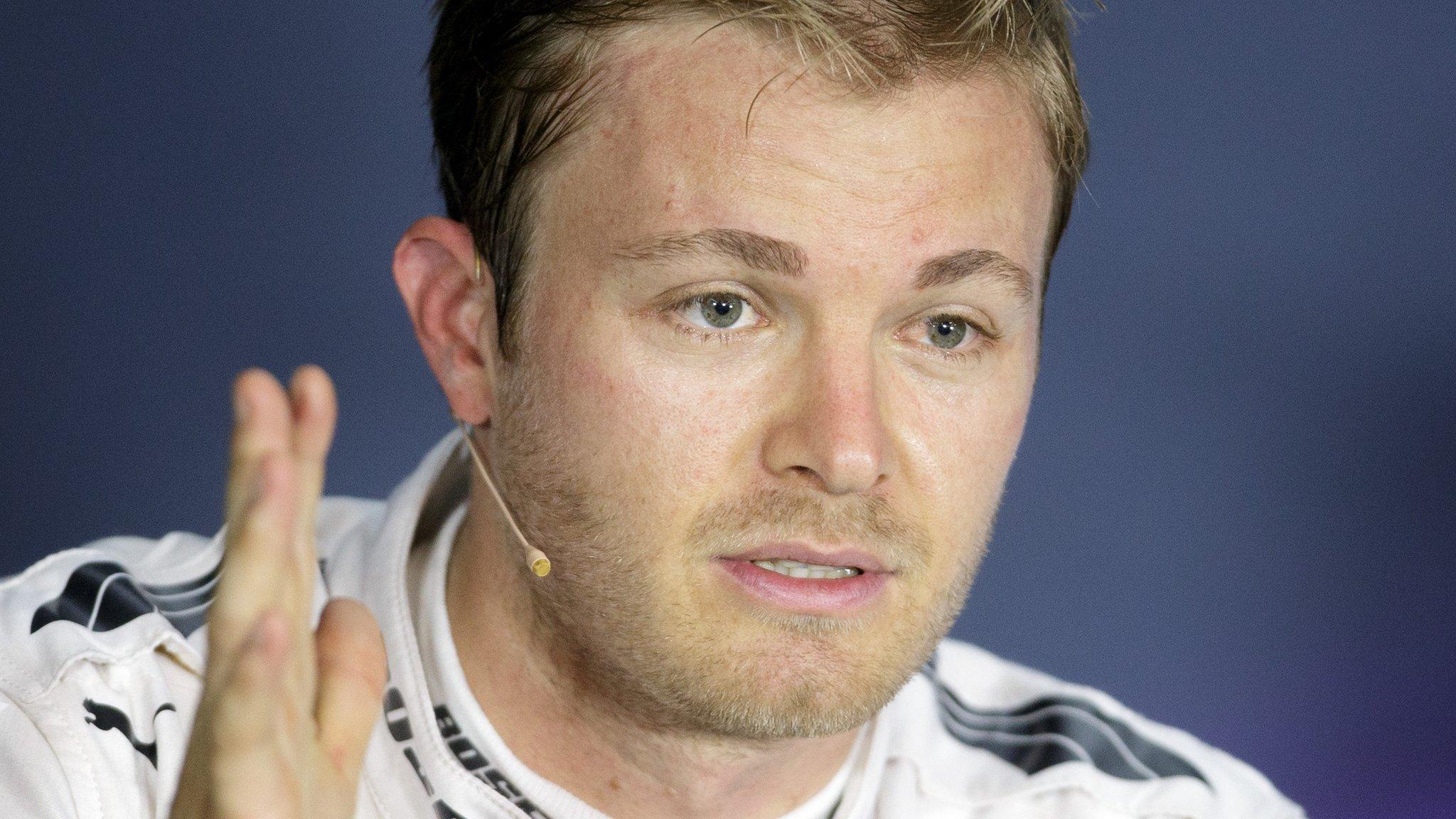
- Published3 July 2016
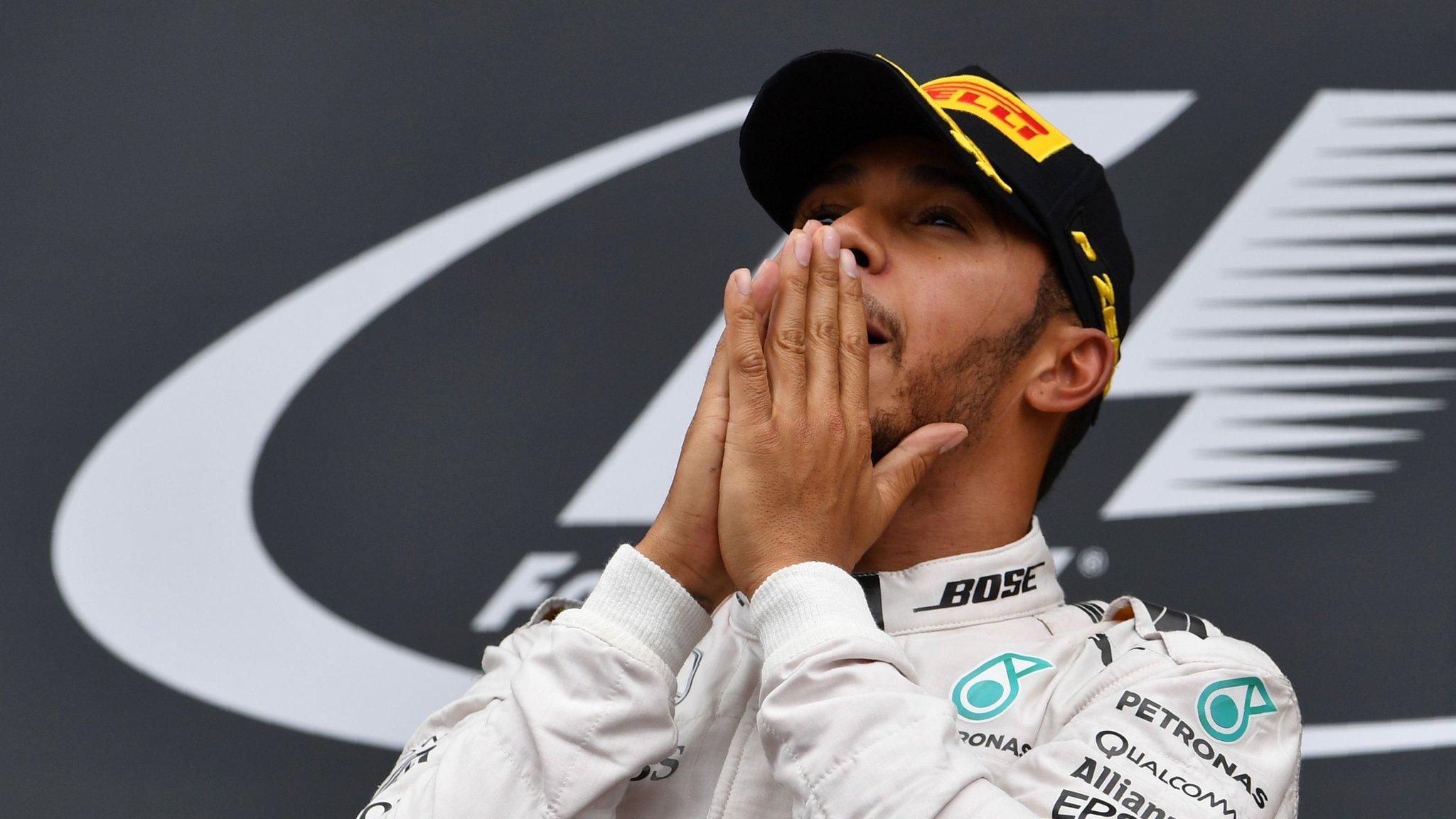
- Published18 December 2015

- Published8 August 2017

- Published13 May 2016

- Published26 February 2019
